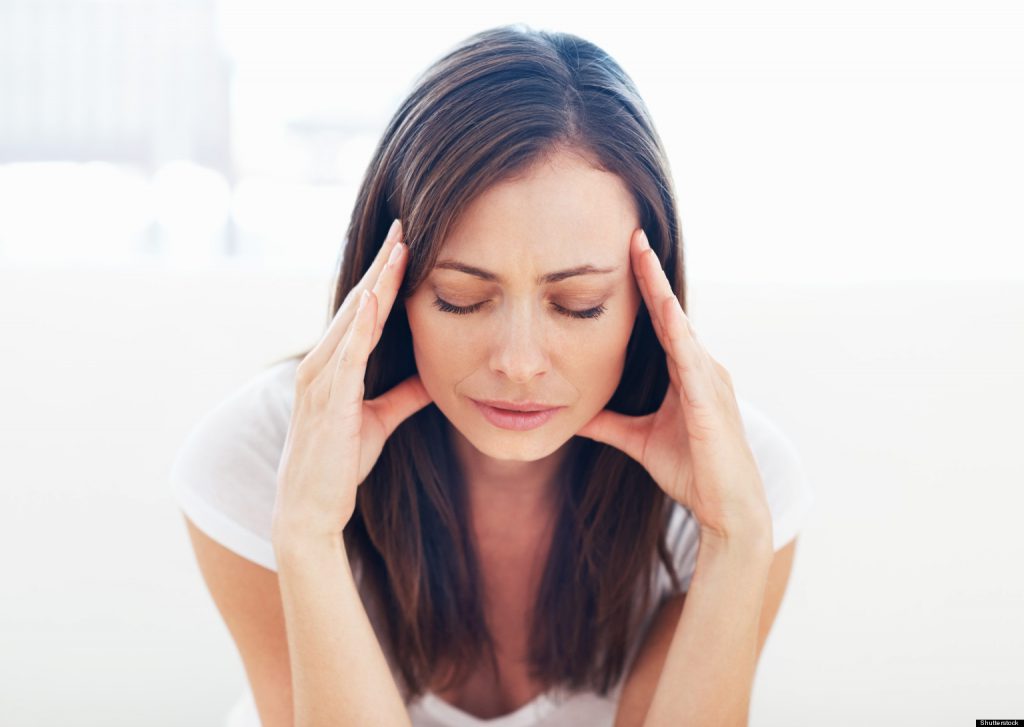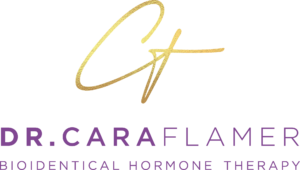Bio-identical HORMONES


There are different types of hormones available to help treat hormonal symptoms.
It’s helpful to distinguish between “conventional hormone replacement” (HRT) and non-conventional/alternative
“bio-identical hormone replacement” (BHRT).
What are bioidentical hormones?
Bio-identical hormones refers to hormones that are identical in structure to the hormones made by your body. They share the same chemical structure, and are processed and metabolized by your body as if your body made them. Because of this, they come with significantly less side effects and risks than the usual conventional/non bio-identical hormones. Bioidentical hormones come from the wild yam or soybean and are then “tweaked” in a lab to become bio-identical. They are compounded in the unique amount to suit your hormonal needs- so the dose is personalized to you. Examples of bio-identical hormones include progesterone, estrogen (“biest”), testosterone, DHEA, and thyroid hormone (dessicated thyroid). They are used to treat premenopausal symptoms such as PMS, heavy periods, PCOS, and cyclical migraines, anxiety, and perimenopausal and menopausal symptoms such as hot flashes, insomnia, anxiety, depression, low libido, fatigue, brain fog and vaginal dryness.
How do they differ from conventional HRT?
Conventional HRT utilizes hormones made commercially by a pharmaceutical company. They come in a pre-set dose, in the form of a pill, a patch, a gel. Some of these are bio-identical and some are not. Studies have shown that the non-bio-bioidentical hormones come with significantly increased risk compared to their bio-identical counterparts. Conventional HRT is used to treat hot flashes and vaginal dryness related to menopause.
The birth control pill is a conventional hormone combination (or in some cases a single hormone) used to treat symptoms relating to a women’s menstrual cycle- such as PMS, heavy periods, severe cramping, fibroids, ovarian cysts, endometriosis,
and PCOS. It is made by a pharmaceutical company (not compound) and is non-bio-identical.
Why People like BHRT:
Many people pursuing bio-identical hormones do so because they prefer as natural a treatment as possible,
and they like the idea that it is personalized to their needs. It is worth knowing that some conventional hormones that are bio—identical can be part of your personalized treatment plan- while they are not from a natural source,
if they are bio-identical then from a medical point of view, that is what counts.
Using hormones that are personalized to your needs and that are bio-identical can be tremendously beneficial. According to the research, we know that hormones play a role in improving bone mineral density, as well as protecting from heart disease (when used within 10 yrs of menopause), and helping with protecting your memory. They may help improve quality of life by helping to relieve many of the possible hormonal symptoms women face, such as fatigue, brain fog, insomnia, hot flashes, low libido, vaginal dryness, hair thinning, to name a few.
All hormones can come with risk- in the same way that something good like water can be toxic if taken in excess,
too much of a “good” hormone can be a bad thing. It is important that any hormone you use be monitored to ensure it is right for you. Your doctor will speak to you about any risks that are specific to you and can create a program
for you that suits your unique needs.
Working with a BHRT Doctor
The approach of working with bio-identical hormones is often quite different than working with conventional HRT. Most of the time, BHRT is prescribed by an integrative medical doctor who takes a very personalized and holistic approach to your health. They often have received additional training in BHRT, as well as other aspects of functional or metabolic medicine. This allows them to consider the value of nutritional support in helping your body process the hormones in the best way possible. They often focus on optimizing the environment of your body- ensuring no vitamin deficiencies and that your body is well-equipped with all the building blocks it needs to do its job well. This approach is considered “pro-active”, because you are looking to optimize your health before things become a problem. Often, private uninsured tests (in addition to bloodwork) are done in order to comprehensively evaluate your hormones- this allows for an even greater degree of personalization of your treatments.
Bio-identical Hormones for premenopause
Bio-identical Hormones for menopause
Bio-identical Hormones for perimenopause
01/03
Bio-identical Hormones
for premenopause
It can be so hard to be a woman! Maybe you have:
- Heavy periods
- Irregular periods
- PCOS
- PMS
- Fibroids
- Ovarian cysts
- Cyclical migraines
- Anxiety/depression that is related to your cycle
- Endometriosis
Whatever your menstrual “issue” is, you are no doubt suffering for a part of the month with it. And the interplay and balance between your hormones are likely a factor in what you are experiencing.
While there can be many causes to the situations listed above, the common theme is hormonal imbalance.
The common imbalance when you are premenopausal is that your progesterone is deficient relative to your estrogen. Treating the progesterone deficiency and helping your body better process its endogenously made estrogen (with specific vitamins / supplements) will help you feel better.
In this stage, the hormone sometimes prescribed is progesterone.
Bio-identical Hormones for premenopause
Bio-identical Hormones for menopause
Bio-identical Hormones for perimenopause
02/03
Bio-identical Hormones
for menopause
Menopause is defined as “12 months without a period.” At this point, you may be suffering with:
- Insomnia
- Hot flashed
- Night sweats
- Anxiety
- Low mood
- Weakness
- Low stamina
- Low motivation
- No or Low libido
- Vaginal dryness
- Reduced memory
- Weight gain
- Thinning hair
You may wonder if this will just pass- maybe you don’t need any hormone replacement at all, right? Maybe your body will just ease itself through this transition and rebalance on its own.
I sincerely wish that for you! Sometimes it happens, for sure. For many women though the symptoms persist or are bothersome enough that they want a solution. In some cases the hot flashes do eventually go away on their own, but the other symptoms (like low libido, vaginal dryness, insomnia, mood changes etc) may persist and be a problem.
In this stage, any of the commonly prescribed bio-identical hormones may be helpful for you. The “tool box” includes progesterone, estrogen (biest and estriol), testosterone, DHEA, and thyroid (dessicated thyroid). The ones recommended for you will be based on your symptoms and what your test results show.
Remember, you CAN feel better! It IS possible to feel yourself again!
Bio-identical Hormones for premenopause
Bio-identical Hormones for menopause
Bio-identical Hormones for perimenopause
03/03
Bio-identical Hormones
for perimenopause
Perimenopause can be super tough for women! You may find a number of things are happening to you:
- Heavier periods
- Irregular periods
- Anxiety & Moodiness
- Not feeling yourself
- Poor sleep / Trouble sleeping
- Waking up hot
- Weight gain
- Sore breasts
- Skin breakouts (Adult acne!)
- No or Low libido
- Thinning hair
- Vaginal dryness
Hormonally what is happening is that your estrogen levels are fluctuating while your progesterone levels are declining. This imbalance creates what we call in integrative medicine an “estrogen dominance.”
And this can make you feel not yourself, to put it mildly.
Isn’t it nice to know that there are solutions for this? While your family doctor may offer you the birth control pill, if you prefer a more holistic approach you can speak to a BHRT doctor and discuss how bio-identical hormones may help you.
In the first stage of peri-menopause, estrogen is generally not needed as it can worsen the situation. In the later stages when your periods are much less regular, you find you are getting hot flashes- in which case estrogen be really helpful for you.
The Role of Stress:
In all of the cases above of hormonal imbalance, stress will magnify the symptoms. When our stress hormone cortisol is released excessively, it will cause how we metabolize our hormones to shift. We will no longer prioritize making testosterone, or keeping and using the progesterone our ovaries or adrenals make. Progesterone will get shunted into making cortisol because it is needed for survival. Testosterone will go down because let’s face it, libido is not essential when you are fighting for your life! (which is what your body thinks it is doing when we are stressed). We all experience stress and for the most part, our body is resilient and can handle it. When the stress is prolonged and our body begins to believe it is always in fight or flight mode that it begins to take a toll on us and our body can become out of balance. Doing things to relax our mind and our body regularly can help us unwind and reduce the effect of stress on our hormones.


If you think you are suffering
FROM hormonal imbalance,
do something to help yourself!
You have options.
Dr. Flamer has worked with thousands of women to help them restore balance, since opening her practice in 2010.
She would love to share her experience and knowledge with you- so bring your questions (and any concerns) with you,
and she will educate and empower you with knowledge and wisdom while optimizing your hormones.
